
Today, we’re rounding up and comparing the best protein powders UK for 2023. It’s the golden child of sports supplementation, so let’s discuss why it’s important and which products we recommend.
Read on if you’re ready to get the best protein for your goals and take a look at our top products you should keep your eye on in 2023…
Table of Contents
Protein: the Most Important Macronutrient
The general role of proteins in the body are varied – but the one you care about is their role in tissues. They are important for the muscles and tendons specifically but are almost universally used for the building blocks of the body.
You’ll find proteins in areas from the joints to the blood to the brain. They both signal for processes in the body and act as the target and raw material of those processes too.
They’re made up of amino acids, and your dietary protein affects all these tissues, while also being key players in metabolism and digestion. Basically, your dietary protein intake is crucial – the most important macronutrient.
It has some cool interactions with carbohydrates but plays a crucial role in building muscle, burning fat, and supporting NET well-being.
Why We Need Protein in the Diet
The dietary proteins you consume become your tissues, while others are combined with fats to form lipoproteins, the key to blood health.
The role of proteins spans every system in the body, so they can’t be overlooked. The protein in your diet is also a significant factor for performance in – and recovery from – high-intensity exercise.
Improved exercise performance is one of the key factors in systematic changes to your muscles, body fat, tendons, ligaments, and even bones. Better performance and recovery – key features of proteins – are basically how you improve your body and its capabilities in the long term.
Equally, protein is a slow-digesting nutrient compared to carbohydrates, which makes it a regulator of digestion and metabolism. Studies already tell us that this has significant effects but consider how replacing poor-quality carbs/fats with protein could combat metabolic issues like diabetes.
The general point here is that better protein intake/quality is going to bring benefits across a huge range of health markers. Estimates put the ideal protein intake between 1.4 and 3.3 grams per kilogram of body weight (the upper end being for more serious athletes/bodybuilders). We’ve considered all the above when choosing our best protein powders UK.
Discover the Best Pre-Workout of 2023
What Are Protein Supplements?
 A protein supplement is just a more convenient and often tasty way of getting your daily protein intake up. It’s often a powdered form of a high-protein food isolate like whey (from milk) or brown rice.
A protein supplement is just a more convenient and often tasty way of getting your daily protein intake up. It’s often a powdered form of a high-protein food isolate like whey (from milk) or brown rice.
Protein powders in water also offer some specific benefits that you can’t get from food. The most obvious is that they’re liquids, which means a much faster transport through the digestive system – and thus faster uptake.
This is why protein shakes tend to be taken post-workout when the body is depleted. However, this isn’t the only time they’re useful – and protein powders offer more options than just the classic protein shake.
You could bake with a protein powder, mix it with oatmeal, or use it for high-protein snacks (like the classic protein banana pancake). Versatility and convenience are ridiculously useful when you’re trying to improve your eating habits!
Types of Protein Supplements
There are a few classic types of protein sources you’re going to see on the market, and they have related, but different, dietary effects.
The difference between these types of protein is most important in relation to goals. It’s not clear that there is a ‘one size fits all’ best protein, but you can get the best results by using the most suitable source for your goals/diet.
Whey protein: In many ways, this is the classic protein: it’s a milk protein that is removed during the cheese and yoghurt-making process. It’s not a million miles from evaporated milk, just a lot bigger and it has a distinct taste (before being flavoured).
It’s a form of rapid-absorption protein, which tends to make it appropriate for post-workout, but less useful throughout the day or before bed. There are obviously problems for the lactose intolerant with many whey proteins – and the overall digestion is hit and miss for many users.
You’ll see tons of whey protein products on the market in the form of both concentrates and isolates. They range from high quality to absolute trash. There are a lot of “get rich quick” companies out there trying to shill low-quality products because the market is just so big. Be discerning with whey proteins!
Casein protein: This is another milk protein, but it offers a completely opposite profile to whey protein in many ways. It has a slow absorption and slow release speed and a soluble chemical structure. It is very slow through the digestive system, making it a perfect bedtime protein.
The uptake of casein over time makes it a great protein source for rest days, too, where you don’t have to worry about digestive ‘weight’. This is a great choice since the slower-digesting protein sources tend to be linked to muscle growth more closely than their whey counterparts.
The benefits of casein are pretty good, but they do struggle on the market compared to whey since they’re not appropriate for post-workout. It’s a great product, but only for those taking their protein supplementation seriously.
Oryzatein Brown Rice Protein: This is an emerging star in the field of protein supplements. Not only is it from plant sources (making it totally vegan), but it also offers an interesting amino acid profile compared to other plant sources, as well as an intermediate-absorption speed. Its leucine content – the most influential BCAA – has also been shown to be absorbed 30% faster than from whey.
This is great because it is appropriate for both post-workout use and general day-to-day protein intake. It also comes with less digestive burden than a standard whey protein or the mandatory slow absorption of casein.
The probiotic nature of a brown rice protein – combined with its mid-level protein absorption speed and fast leucine – make it a great choice. We’re big fans of this emerging technology and what it offers compared to other lower-quality vegan protein powders like soy, hemp, or pea proteins. We also believe that it’s a quality alternative to whey.
Why Use a Protein Supplement?
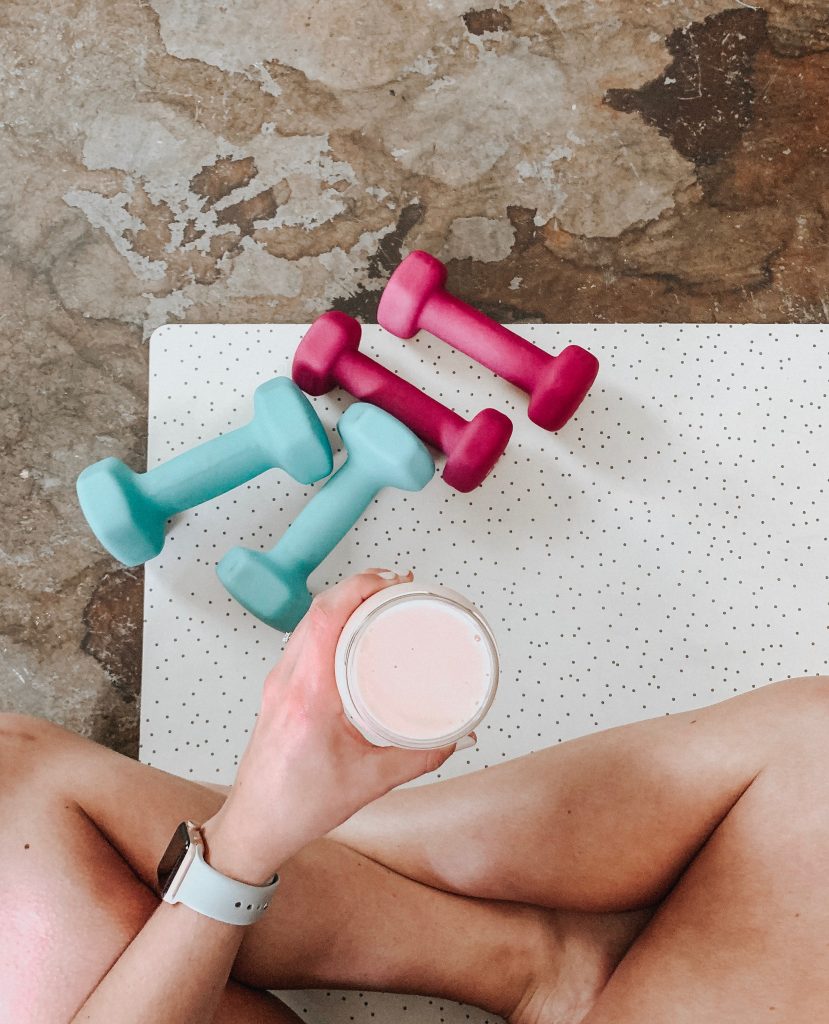
You might wonder if our best protein powders UK are right for you – do you need them to reach your fitness goals? Are they the right products for your lifestyle choices? Indeed, why should you use a protein supplement at all? Let’s try to answer that for you…
First, there’s a ton of convenience with protein supplements and you can really get versatile with your diet in a way you might not otherwise.
To start with, the purity of these products is great because they don’t bring the calories associated with other protein sources. Protein-rich foods like eggs or meat tend to come with more fat than a protein supplement, making them a more difficult food to use on a weight-loss diet.
Equally, there are combinations that just don’t make sense for whole foods. For example, a protein shake is great with a supplement, but you might not want to blend brown rice or chicken into your morning smoothie.
(Unless you’re a pro strongman and general freak athlete…)!
The versatility of a relatively neutral-tasting protein-rich powder is amazing. You can do so much with these supplements that just don’t make sense with whole foods. For most people, this is a huge convenience and takes the sting out of higher daily protein requirements!
The post-workout benefits are also important: you need to be able to carry your post-workout protein source with you. For most of us, with jobs and places to be, it’s not convenient to bring food to the gym or to eat out every evening after the gym.
The convenience of a protein supplement can make this much easier and keep protein availability high throughout the day. This is a small change that has a serious impact on lifestyle!
What to Look for in a Protein Supplement
Here’s what we’ve looked for in our best protein powders UK.
Purity: The purity of a protein source refers to how many of the calories in it come from protein sources. We also look at the number of grams of protein per serving (e.g. 30g serving with 27g of protein is 90% pure).
This just refers to the amount of protein content you’re going to get per scoop and thus how valuable it is as a protein source. This isn’t the sole important factor, however: it depends on what the other stuff in a protein supplement is. For example, 3g of sugar in your protein powder is very different from 3g of enzymes, creatine, and fibre. Purity tells us that it’s a decent protein source, but there’s still a lot to learn about a product.
Digestibility: This is one of the key factors that a company doesn’t often talk about but comes out in the reviews. We’ve reviewed a lot of protein powders and one of the most important things you’ll experience is how your body digests them.
There are low-quality protein sources that are made from lower-quality whey sources that are horrendous for this. Plant proteins tend to be better for this kind of factor, while casein is pretty good for this, and whey products are very hit-and-miss.
This is one of the most important things to look for in reviews and finding a good protein powder that agrees with you is a huge benefit.
Amino Acid Profile: The amino acid profile refers to the amino acids that make up a protein. There are 20 essential amino acids, and a protein that offers all of them is a better choice since your body has a complete supply of amino acids to draw from.
You need all of these – and especially muscle- and tendon-builders like leucine – so a complete protein is the best choice. Casein, whey, and Oryzatein are all complete proteins while something like hemp is incomplete.
For the best results, complete proteins are a necessity and the quantity/release of leucine is going to be a bonus. Whey has more leucine but seems to release slower than the leucine in Oryzatein, while casein doesn’t really need to factor in the absorption speed since it’s slow on purpose.
Our list of the best protein powders UK below takes all of this into consideration for you.
A Quick Note: Best Protein for Women
Just to dispel some myths out there, the best proteins for men and women are the same; there aren’t huge differences in processing that makes one supplement ‘for women’. That’s not how proteins work.
Sexual differences in dietary requirements are primarily vitamins, minerals, and the ratio of carbs to fats in a diet. There is no need for special protein powders for women.
Discover the Best Pre-Workout of 2023
Best Protein Powders UK for 2023
 Optimum Nutrition Gold Standard Whey (Best Whey Protein Powder)
Optimum Nutrition Gold Standard Whey (Best Whey Protein Powder)
Optimum Nutrition Gold Standard 100% Whey is a crowd favourite among muscle enthusiasts, with a strong reputation. It’s a pretty normal product when it comes to purity and secondary ingredients but has great popularity for its taste and digestibility.
As a whey protein, these two benefits are rare and great. This is our favourite whey protein for this exact reason – you can use it for great results, consistently, without the worst aspects of a whey protein powder.
It’s a good all-rounder for a whey product and it also wins the best consistency/taste for a whey protein. Making it the headliner on our list of best protein powders UK.
Read our Full Review of Optimum Nutrition Gold Standard Whey
 Bulk Powders Liquid Egg Whites (Best Protein Supp for Weight Loss)
Bulk Powders Liquid Egg Whites (Best Protein Supp for Weight Loss)
Ok, we’re slightly cheating here as this isn’t a powder but a liquid. Bulk Powder’s Egg White protein powder is out of stock at the time of writing, so we’ve focused on its liquid version instead. (We’d also recommend the powder version if it becomes available again).
The best diet protein supplement isn’t a ‘diet whey’ – but rather an egg protein, which has huge purity. Bulk Powders Liquid Egg Whites contains no additional nutrients other than protein, so your ratio of calories to protein is amazing.
This also makes it the best protein powder for weight loss. It contains no fat and less than 1g of carbs per 100g of product. The lower calorie content allows you to keep calories low and protein high. This improves the rate of weight loss, while also supporting muscular health and ensuring that you’re losing fat rather than cannibalising muscle proteins.
It’s 90% protein calorie content and is simple but effective – just don’t expect the same experience as a whey, casein, or Oryzatein protein – it’s totally unique!
BSN Syntha-6 (Best Protein Powder for Bulking)
The best protein powder for bulking is anything that offers a cheap, high-quality, digestible protein source.
The purity matters less when you’re gaining weight since you’re not watching every single calorie. The focus, then, is total protein intake and any secondary ingredients that may support the process.
A protein powder that has a high protein-per-dollar, rather than protein-per-calorie, is the most effective for muscle gains. It should also be a whey protein or casein to support leucine-volume, which can be really useful for muscle gains.
The challenge here has been the digestibility, but Syntha-6’s formula is both digestible and relatively delicious for a whey product. There’s a significant carbohydrate content compared to other products on this list, but that’s not a problem when you’re bulking.
The carbs in this product are more likely to support your goals than hinder them. It makes a good bulking protein for the digestibility (you can take lots in, comfortably), the taste, and the dollar-cost of a huge tub of protein.
 MyProtein Impact Whey (Best Budget Protein)
MyProtein Impact Whey (Best Budget Protein)
Rounding out our recommendations for the best protein powders UK is MyProtein Impact Whey. This is a pretty popular line at this point, and it’s still one of our favourite budget products. While there’s a pretty steep drop-off in quality for many budget products, MyProtein has surprising quality.
It also has pretty decent taste, and there are lots of flavours to choose from.
Overall, a decent product if you’re looking into your first whey protein. It’s not the best, but it does a great job for a beginner or a tight budget.
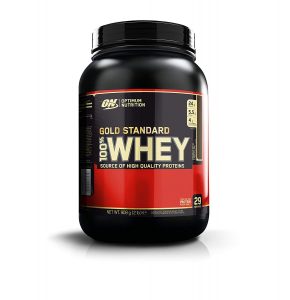 Optimum Nutrition Gold Standard Whey (Best Whey Protein Powder)
Optimum Nutrition Gold Standard Whey (Best Whey Protein Powder)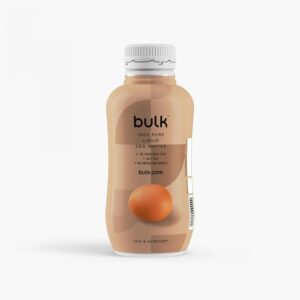 Bulk Powders Liquid Egg Whites (Best Protein Supp for Weight Loss)
Bulk Powders Liquid Egg Whites (Best Protein Supp for Weight Loss)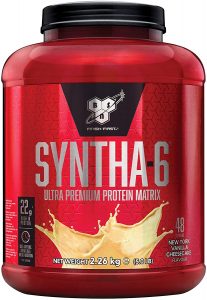
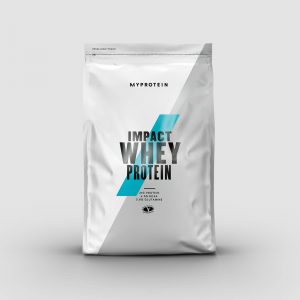 MyProtein Impact Whey (Best Budget Protein)
MyProtein Impact Whey (Best Budget Protein)